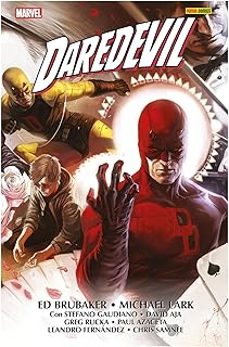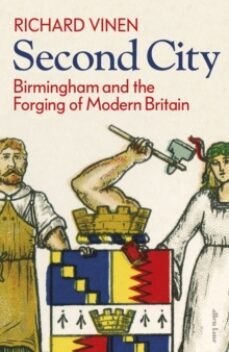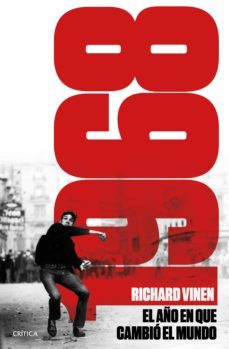Imprescindibles
Más vendidos Libros más leídos eBooks más leídos Todos los libros Todos los libros Autores destacados Series y sagas
Recomendados Libros recomendados Autores destacados Libros que inspiran Vidas con historia LGTBIQ+ English books
Ficción
Literatura Contemporánea Estudios literarios Clásicos Cuentos Poesía Teatro Libros de bolsillo Sagas literarias
Géneros literarios Novela romántica y erótica Novela negra Novela histórica Narrativa fantástica Novela de ciencia ficción Novela de terror Narrativa de humor Narrativa de viajes
No Ficción
Ciencias y tecnología Biología Ciencias Ciencias naturales Divulgación científica Informática Ingeniería Matemáticas Medicina Salud y dietas Formación Idiomas Estilo de vida Libros de Cocina Guías de viaje Narrativa de viajes Deportes Libros de Juegos Manualidades
Humanidades Autoayuda y espiritualidad Ciencias humanas Derecho Economía y Empresa Psicología y Pedagogía Filosofía Sociología Filología Biblioteconomía Estudios filológicos Estudios lingüísticos Estudios literarios Historia y crítica de la Literatura
Infantil
Juvenil
#Jóvenes lectores Narrativa juvenil Clásicos adaptados Libros Wattpad Libros Booktok Libros de influencers Libros de Youtubers Libros Spicy Juveniles Libros LGTBIQ+ Temas sociales Libros ciencia ficción Libros de acción y aventura Cómic y Manga Juvenil Cómic Juvenil Manga Shonen Manga Shojo Autores destacados Jennifer L. Armentrout Eloy Moreno Nerea Llanes Hannah Nicole Maehrer
Libros de fantasía Cozy Fantasy Dark academia Hadas y Fae Romantasy Royal Fantasy Urban Fantasy Vampiros y hombres lobo Otros Misterio y terror Cozy mistery Policiaca Spooky Terror Thriller y suspense Otros
Libros románticos y de amor Dark Romance Clean Romance Cowboy Romance Mafia y amor Romance dramatico Romcom Sport Romance Otros Clichés Enemies to Lovers Friends to Lovers Hermanastros Slow Burn Fake Dating Triángulo amoroso
Cómic y Manga
Novela gráfica Novela gráfica americana Novela gráfica europea Novela gráfica de otros países Personajes, series y sagas Series y sagas Star Wars Superhéroes Cómics DC Cómics Marvel Cómics otros superhéroes Cómics Valiant
Books in English
Books in English Fiction Non Fiction Comic Teen & Young Adult Main Authors Ken Follett Agatha Christie Stephen King Jane Austen Maggie O’Farrell On sale
Books in English for Young Adults Age 13+ Age 15+ Young Adult Authors Rebecca Yarros Sarah J. Maas Brandon Sanderson Ali Hazelwood Alice Oseman
Audiolibros
Literatura Contemporánea Narrativa fantástica Novela de ciencia ficción Novela de terror Novela histórica Novela negra Novela romántica y erótica Historia Historia universal
Humanidades Autoayuda y espiritualidad Ciencias humanas Economía y empresa Psicología y pedagogía Filosofía Infantil Audiolibros infantiles
Ciencia y tecnología Ciencias naturales Divulgación científica Medicina Salud y dietas Arte Cine Música Historia del arte
eBooks
Literatura Contemporánea Narrativa fantástica Novela de ciencia ficción Novela de terror Novela histórica Novela negra Novela romántica y erótica Juvenil Más de 13 años Más de 15 años Infantil eBooks infantiles
Humanidades Autoayuda y espiritualidad Ciencias humanas Economía y Empresa Psicología y Pedagogía Filosofía Historia Historia de España Historia Universal Arte Cine Música Historia del arte
Ciencia y tecnología Ciencias naturales Divulgación científica Medicina Salud y dietas Filología Estudios lingüísticos Estudios literarios Historia y crítica de la Literatura Estilo de vida Cocina Guías de viaje Ocio y deportes
Richard Vinen
Richard Vinen es catedrático de Historia en el King’s College de Londres y autor de varios libros importantes sobre la Europa del siglo xx.
Recibe novedades de Richard Vinen directamente en tu email
Filtros
Del 1 al 5 de 5
DK 9780241454534
A DAILY TELEGRAPH BOOK OF THE YEAR 2022'A spirited attempt at uncovering the mystery of how Birmingham has managed for so long to stand at the centre of Britain's history without anyone noticing ... This absorbing book shows us how we did it' Observer'Vinen has written a history of Birmingham, but it is also a theory of Birmingham. And also, perhaps, a theory of England.I buy it' Daily TelegraphFor over a century, Birmingham has been the second largest town in England, and central to modern history. In his richly enjoyable new book Richard Vinen captures the drama of a small village that grew to become the quintessential city of the twentieth century: a place of mass production, full employment and prosperity that began in the 1930s, but which came to a cataclysmic halt in the 1980s. For most of that time, Birmingham has also been a magnet for migration, drawing in people from Wales, Ireland, India, Pakistan and the Caribbean.
Ver más
Tapa dura
Ediciones Península 9788483074411
Hace poco más de una década el siglo XX parecía más simple. Se basaba en oposiciones tajantes: Oriente y Occidente, capitalismo y comunismo o izquierda y derecha; y sus fronteras eran cronológicas además de geográficas: 1945 era una divisoria entre la violencia y los grandes traumas (el tereno del historiador), por una parte, y, por otra, la estabilidad y la prosperidad ( el del politólogo).
Ver más
Tapa blanda
BLOOMSBURY PUBLISHING LTD. 9781526668936
Deeply researched yet highly readable with fresh and often provocative insights DAVID REYNOLDS A vivid and shrewd reckoning setting its assessment in the perspective of today s troubled world PETER CLARKE A compelling dual biography of Winston Churchill and Charles de Gaulle that shines new light on two of the greatest figures of the twentieth century Winston Churchill and Charles de Gaulle were thrown together by war They incarnated the resistance of Britain and France to the existential threat from Nazi Germany and their ultimate victory over Hitler has ensured their achievements will never be forgotten But as The Last Titans Churchill and de Gaulle shows that is only a part of a complex story Both men influenced their countries and the world around them long after the war was won There was a paradox in the parallel and intertwined lives of these extraordinary men De Gaulle tall gauche and incorruptible exhibited qualities often associated with the English Churchill short charming witty and a bon vivant resembled the quintessential politician of the French Third Republic Their working relationship was rarely smooth but they appreciated each other s stature de Gaulle said Churchill was the great artist of a great history while
Ver más
Tapa dura
Editorial Crítica 9788498929898
Richard Vinen, profesor del King’s College de Londres, trata de recuperar los acontecimientos de 1968 para la historia, situándolos en un contexto más amplio y analizando lo que quedó de positivo par
Ver más
Tapa dura
Del 1 al 5 de 5





























